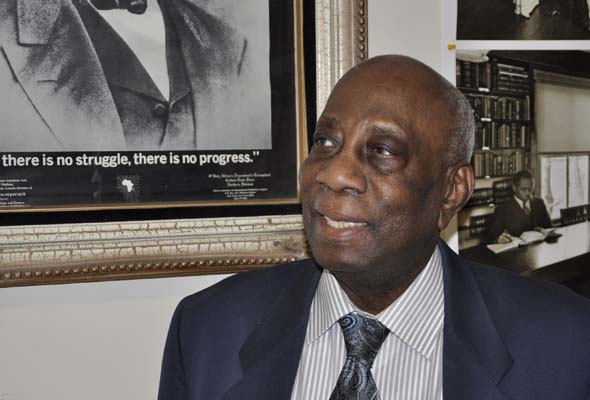From North Africa to the Middle East, the Islamic world is in turmoil and Afghanistan can be seen as a precursor. What can we expect when most foreign forces leave by the end of next year?
We put the whither-Afghanistan question to Laurie Wiseberg, a human-rights expert who recently returned to Montreal after a nine-month stint working with the United Nations High Commissioner for Refugees.
Her mandate was to develop a policy for an estimated 1.2 million or more internally displaced Afghans, similar to a 2008 mission she carried out as a senior protection officer and adviser on internal displacement.
Though she has vast experience in conflict zones ranging from former Yugoslavia to southeast Asia, she sees little value in continued Western efforts to steer the country toward accommodation and a democratic model.
Just understanding the complexities of Afghan society is a major challenge.
“We come in and we see a surface. With the security situation being what it is, you hardly ever visit an Afghan in his house. You don’t see how the ordinary Afghan lives,” she said in a chat at her Old Montreal condo.
“When you do go out, it is always with major security. You can read the novels of Khaled Hosseini (The Kite Runner, And the Mountains Echoed), but that does not mean you understand Afghan society.”
The West is pinning its hopes on Afghan President Hamid Karzai, but he might not champion gender equality or other liberal/democratic values, she observed.
“Karzai is not a great women’s advocate. Women are very much oppressed—on a tribal basis, not on a religious basis,” she said.
“It’s not Islam that is the culprit. It’s fundamentalism and extremism. Once you get these true believers—religion together with politics—it means there is no room for any freedom of thought any more.”
The Taliban, committed to a Sharia-based ideology, have time on their side, and Wiseberg says the situation is deteriorating despite billions spent in military and economic assistance.
“In 2008, I could travel in much of the country, though not in the Kandahar area. In 2012, I couldn’t go by road almost anywhere, a much deteriorated security situation.”
Humanitarian agencies are increasingly being targeted. The International Committee for the Red Cross and International Organization for Migration have been attacked this year. Canada and other coalition members operated Provincial Reconstruction Teams, building schools and distributing humanitarian aid, but the Taliban viewed some of these efforts as enemy activities, she said.
“If the American military gave much-needed food to an internally displaced community—and they needed it and it was done with the best of intentions—the Taliban concluded this community was cooperating with the enemy.”
Returning home is usually not an option for security reasons and because those who have lived in an urban environment for years “don’t want to return to a little village way up in the mountains somewhere with no health services and no education for their children.”
For resettlement to succeed, there have to be jobs, which are usually only available in areas that are already populated. And if a community fled the north, for example, because of alleged Taliban sympathies, their loyalty might be suspect in a new location.
Afghans will have to resolve their own problems, but Wiseberg warns the end may be a dark one.
She foresees increased conflict in the wake of the Western pullout, with Karzai’s forces entrenching themselves in the cities, and great displacement from rural areas to urban slums.
The most Westernized, entrepreneurial and liberal Afghans can be expected to leave the country, while tribal groups will ally, compete for land and resources, and engage in corrupt practices that will “trump any remnants of democratic and transparent processes,” she predicts.
“I fear that the modest advances that have been made since 2002—girls going to school, women permitted to work in limited areas, some women in political positions in Parliament, government and research—all of that will be at risk.
“It makes me very sad because Afghanistan is a rich and beautiful country, with many warm, hospitable and creative people.
“But it is also a brutal society in which women have been cruelly mistreated. If they are violated, they are killed to protect family honour.
“The burka makes women disappear—it erases their faces, their bodies, their identities, and they become nothing behind a blue pleated piece of cloth.
“Every human being should count and be valued, but that is not what I see when I look into Afghanistan’s tomorrow.”
Wiseberg was able to take thousands of photographs, which she’s collected in more than 200 albums. She gathered recipes and purchased carpets, sculpture and artifacts that give her home a colourful and multi-textured look.
Wiseberg grew up in the 1940s, on St. Urbain near St. Viateur. She is the daughter of European-born parents who worked in clothing factories. She has one son, Jesse, and three stepsons with her American husband, Harry Scoble, who died in 1988 while they were living in Boston, and five grandchildren.
By her own reckoning, Wiseberg’s lifelong commitment to human-rights work can be traced to her roots and the beliefs of her parents, Joseph and Molly.
Young Laurie worked as a counselor at left-wing summer camps in the Laurentians, where ideas heard at home were amplified.
“I read quite widely, even at a young age, and it (working for international human rights) seemed like the right thing to do.”
Wiseberg, now 70, is no longer on full-time contract with PROCAP, an inter-UN agency program that includes the UN high commissions for human rights and refugees and UNICEF, as she was for more than six years.
While waiting for shorter–term assignments in the field, she plans to write of her experiences, combatting Roma resettlement in Kosovo, human trafficking in Montenegro, and other issues in which she’s been directly involved.





Be the first to comment on "Fundamentalism, extremism the enemies in Afghanistan"